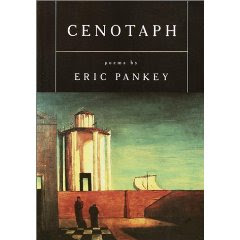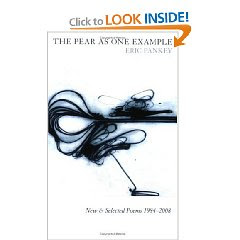I’ve been working on a interview project with Deborah at 32 Poems magazine, and she kindly allowed me to interview past contributors to the magazine. We will be posting the interviews throughout the coming months, and our second interview posted on Deborah’s Poetry Blog of 32 Poems on Feb. 5.
I’m going to provide you with a snippet from the interview, but if you want to read the entire interview, I’ll provide you a link for that as well.

1. Not only are you a contributor to 32 Poems, you also have a published book, Cenotaph, and in an interview with Bold Type you mentioned you once wanted to be a visual artist. Would you ever consider melding the two forms–visual art and poetry? Also as a poet and professor, what “hat” do you find most difficult to wear and why?
I try to keep the poetry and visual arts separate. Each allows me a different kind of articulation, a different kind of vision.
This last year I had the good fortune to have visual artwork in several
I tend to be a social creature and the writing of poems happens most often in solitude. The work of teaching gives me community and conversation and that stimulation often leads me to long once again for the solitude of writing. And then the cycle repeats.
2. Poetry is often considered elitist or inaccessible by mainstream readers. Do poets have an obligation to dispel that myth and how do you think it could be accomplished?
I am not sure what a “mainstream reader” is.
I do not, for instance, read contemporary plays and really only read novels in the summer, but that is not because I find them elitist or inaccessible. I find it more pleasurable to read poetry, art history, and general nonfiction.
I think people read what they find pleasurable. Pleasure is one of the purposes of poetry.
Some people like the surface of the poetry they read to be complex, dense, and even hermetic. Some like a surface that is transparent, clear, uncluttered. Some like poetry that is laugh-out-loud funny. Some people like deeply brooding poetry. I think the variety of American poetry is great and that there is poetry out there for all sorts of tastes.
3. How do you stay fit and healthy as a writer?
Sometimes my dog will take me for a walk, but mostly I am out of shape.
Eric Pankey was born on February 25, 1959 in Kansas City, Missouri, the son of James A. and Frances Pankey both of whom were accountants. In 1985 he married Jennifer Atkinson a writer whose papers are also in Special Collections. Pankey obtained degrees from the University of Missouri at Columbia, B.S., 1981 and the University of Iowa, M.F.A., 1983. He taught at Washington University from 1987 to 1996 and is now Professor of English at George Mason University in Washington, D.C. He was awarded the Walt Whitman Award from the Academy of American Poets in 1984 for his collection, For the New Year. Since then he has written other books including his collections, Heartwood: Poems (1988), The Late Romances: Poems (1997), Apocrypha: Poems (1991) and Cenotaph (2000). His work has been supported by fellowships from The Ingram Merrill Foundation, The National Endowment for the Arts, and The John Simon Guggenheim Memorial.
Want to find out what Eric’s writing space looks like? What music he listens to while he writes? Find out what he’s working on now, and much more. Check out the rest of my interview with Eric here. Please feel free to comment on the 32 Poems blog and Savvy Verse & Wit.
Also, check out this interview with Eric on How a Poem Happens.




